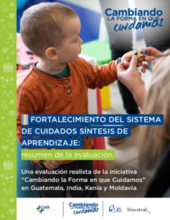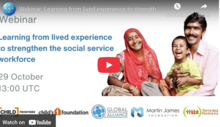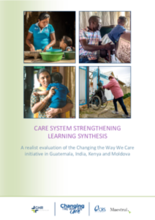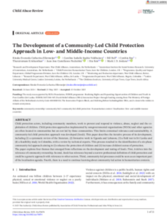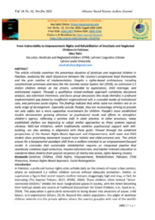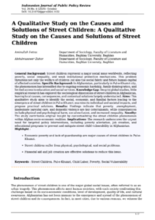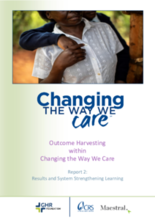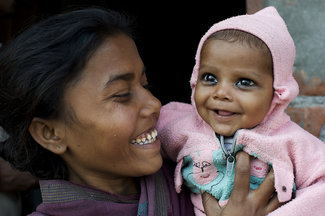

Displaying 11 - 20 of 746
Cambiar la Forma en que Cuidamos (CTWWC, por sus siglas en inglés) es una iniciativa global que promueve un cuidado familiar seguro y afectuoso para los niños.
Changing the Way We Care’s “Care System Strengthening Learning Synthesis: Evaluation Summary” distills lessons from care reform efforts in four countries, examining how change happened across laws, workforce, financing, monitoring, and services. It finds that evidence-based advocacy, strong government ownership, collaboration, and capacity-building were central to driving and sustaining reform across diverse contexts.
This webinar showcased the learning from Strengthening the Social Service Workforce for Family-Based Care, a two-year project implemented by the Global Social Service Workforce Alliance, with technical support from Child Frontiers, under a grant f
This report presents findings from an evaluation by Changing the Way We Care (CTWWC) that used a realist approach to examine how care reform progressed in Guatemala, India, Kenya, and Moldova across five key system components. It identifies advocacy, government ownership, collaboration, and capacity-building as major drivers of change and offers recommendations for governments and partners to embed family care in national systems, strengthen coordination and workforce capacity, and sustain reforms through evidence, shared learning, and long-term commitment.
This paper outlines the development of a community-led child protection approach (Seeds), created through a multi-stage process involving a systematic literature review, formative research in Uganda and Lebanon, a field test in Sri Lanka, a feasibility study in Colombia, and expert review, resulting in a six-phase model designed to strengthen children’s protection and their sense of safety.
Changing the Way We Care (CTWWC) is a global initiative which promotes safe, nurturing family care for children.
This article analyzes the gap between Pakistan’s progressive child protection laws and the harsh realities faced by the country’s 1.5 million destitute and neglected children, highlighting how weak implementation, custodial care models, and social stigma undermine their rights and well-being. It argues that meaningful rehabilitation requires shifting from welfare-based responses to empowerment-focused, holistic support systems that integrate legal protection, trauma-informed care, and market-relevant education.
This study explores the social, economic, and familial factors contributing to the rise of street children in Pul-e-Khumri, Afghanistan, where poverty, unemployment, and family breakdown have deepened the crisis. By highlighting the severe individual and societal impacts, it calls for targeted policies—such as poverty reduction, job creation, and access to education—to address the root causes and protect vulnerable children.
At the close of the Changing the Way We Care (CTWWC) The Changing the Way We Care (CTWWC) initiative launched in 2018 with the aim to reform child care systems by promoting safe, nurturing family-based care over institutional ca

